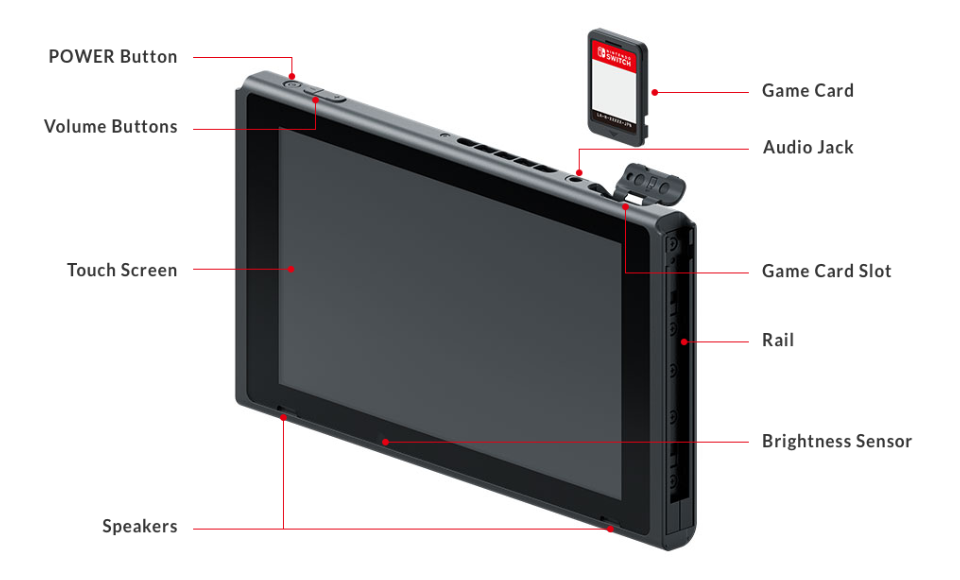Nintendo's next big thing, its Switch gaming console, is essentially a fancied up tablet.
It comes with a dock that allows you to play games on a television and small, paddle-like controllers bristling with buttons and triggers that can slide into either side of the Nintendo Switch tablet.
But strip all of that away and you're left with a 6.2-inch touchscreen tablet, or something a bit smaller than an iPad Mini 4, designed for gaming on the go.
Which begs the question: Once the Switch hits on March 3 for about $300, will Nintendo's competition become more Apple and its mobile devices than the PlayStation 4 and Xbox One?
Perhaps that wouldn't be a bad thing.
The current state of gaming on Apple devices is a bit of a mess. While you can find robust games that run on the iPad, like strategy game XCOM and action title BioShock, they tend to be ports, not original releases.
Instead, the bulk of the games that make up the library of Apple's phone and tablet are what Nintendo of America president Reggie Fils-Amie once called "bite-sized entertainment." They're not meals, simply a bit of gaming amuse-bouche.
And finding good titles among those tiny creations can be a challenge. The App Store is a bloated storefront buckling under the tremendous demands of developers of all types. The games that rise to the top often rely on pay-to-play tactics that can eventually erode the quality of content.
But, to be fair, Apple never set out to be a game publisher or to create devices chiefly designed for gameplay. That gaming has become such a massive success on the system is almost despite Apple's early efforts.

Enter Nintendo, a company with the experience in solving this very specific problem.
Back in the mid-80s, gaming as a whole faced an issue of a glut of bad games. It was, some believe, one of the reasons the American home video game market collapsed in 1983. When Nintendo waded into the fray with its Nintendo Entertainment System, it brought with it an interesting concept: The Official Nintendo Seal of Quality.
The seal was how Nintendo told customers that the game wasn't poorly conceived or developed. It was a quality game.
While gaming consoles have mostly sorted through those issues today, mobile games seem stuck in the same flood of bad titles that so undermined console gaming in the 80s.
By redirecting its attention to a new market, Nintendo has the opportunity to do for mobile games what it already did for console games.
Of course, we don't know yet what Nintendo really has in mind for its system. That, despite a day spent showing the device to the press and answering nearly as many questions as it declined to.

So far Nintendo has only shown off big, console-like titles such as Super Mario Odyssey, Mario Kart 8 Deluxe and Splatoon 2.
But it stands to reason that a device with touchscreen support will eventually get some of the same tiny games that Nintendo once derided. The company is already making some of those games, like Super Mario Run, for smartphones.
Perhaps the Switch could find yet another Blue Ocean from which Nintendo can convert a whole other sort of gamer. Where the Wii sought out and found a generation of willing casual gamers, interested in playing motion games like tennis and bowling, perhaps the Switch will tap into the super casual gamer. The people who play games on their smartphones and tablets everyday, but would never identify themselves as a gamer.
It's an interesting tactic for Nintendo to potentially take in the wake of the dismal failure of its Wii U game console, which Nintendo recently stopped making.
Where the Wii U was a confusion of technology (it included standard controllers, motion play, HD graphics and even a tablet-like GamePad that wasn't designed to leave the house), the Switch appears to be relatively narrowly focused.

The core concept is a tablet that can play host to games on the go or be dropped into a dock for gaming on a television.
The company built motion controls and even some basic shape detection into those detachable paddles, but so far those features feel almost unnecessary to the core device. That's in part because we're not seeing a lot of great uses for the tech yet, a sign that perhaps Nintendo will rely on third-party developers to prove its worth.
The paddles themselves could easily become the sort of thing that could be shed at a moment's notice for simple touch-screen gaming. And a future with a Nintendo tablet, one that can deliver quality Nintendo games on a sleek, self-contained device, doesn't sound that bad at all.
What we still need to see, though, are any games using the touchscreen in a meaningful way and whether or not the Switch will become a full tablet replacement by allowing users to do non-gaming things with it, like browse the internet, watch videos and listen to music.
With just a couple of months until the Switch hits stores, Nintendo still has a lot to explain.
Good Game is an internationally syndicated weekly news and opinion column about the big stories of the week in the gaming industry and its bigger impact on things to come. Brian Crecente is a founding editor and executive editor of Polygon.
Source: A Nintendo tablet is a fantastic idea
No comments:
Post a Comment